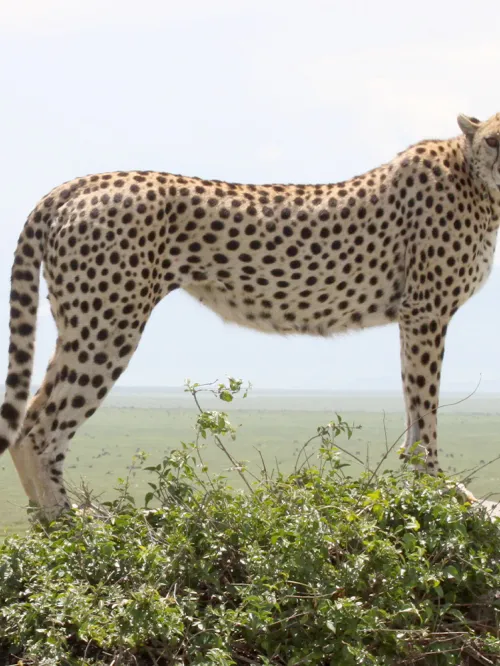Our work in Africa
Humane World for Animals tackles the root causes of animal cruelty and suffering to create permanent change. We make change at scale, advocating for policy change at all levels of government and working with companies so that they can be kinder to animals their businesses impact. We work in partnership with communities, bringing diverse expertise to the most complex issues, and doing it all with a compassionate and welcoming approach.
Our impact
We envision a world without animal cruelty, where humans and animals coexist peacefully. In Africa, we work to promote non-lethal solutions to human-wildlife conflicts, improve the lives of animals raised for food, end the illegal wildlife and captive big cat trade, advocate for a more plant-forward food system, increase access to spay/neuter services and primary veterinary care for companion animals, ending cosmetics animal testing and helping animals in disaster situations.
outside Kruger National Park have received an immunocontraceptive vaccine
have a permanent home at our sanctuary in Liberia
in South Africa have been sterilized through our Healthy Pets, Healthier Communities initiative
Latest News
What Scientists Have Said
“Even if a chemical is found to be nontoxic in animal studies, the safety of the chemical cannot be assured.” – Dr. Barbara Shane, U.S. National Toxicology Program [ 1] “Currently available animal models, used for evaluating potential therapies prior to human

Wildlife Trade
The commercial trade in wild animals is a multi-billion dollar business that threatens the survival of many species and results in the inhumane treatment of billions of animals every year. Humane Society International has long been involved in international efforts to reduce
Convention on Migratory Species of Wild Animals (CMS)
The Convention on the Conservation of Migratory Species of Wild Animals (also known as CMS or the Bonn Convention) aims to conserve terrestrial, marine, and avian migratory species throughout their range. There are now 102 countries that are parties or members of
Dolphins
Dolphins and other small cetaceans are a diverse group of species that are found primarily in temperate and tropical seas, and in the case of river dolphins, even in fresh water. Some hug coastlines; others live far out in the open sea
EU Regulation of Animal Experiments
1986 animal experiments directive Legislation governing the care and use of animals for experimental and other scientific purposes was laid down more than 20 years ago under Directive 86/609/EEC. This directive—which is binding in all 27 member states of the European Union—stipulates
EU Institutions
The European Union is a confederation of 27 countries that operates according to a supra-national system of governance, under which member countries delegate some of their decision-making powers to a variety of EU institutions, including a Council comprised of member country representatives
International Laws, Regulations and Guidelines for Animals in Research
Australia Code of Practice for the Care and Use of Animals for Scientific Purposes Canada CCAC Guidelines CCAC Policy Statements European Union EU Regulation of Animal Experiments Council Directive 86/609/EEC Regarding the Protection of Animals Used for Experimental and Other Scientific Purposes
The Canadian Grizzly Bear Hunt
Few animals personify the beauty and grandeur of the Canadian wilderness as well as the grizzly bear. Their strength and beauty, their devotion to their young and their intelligent curiosity enrich our lives and inspire us. Sadly, in Canada, there are fewer
Ecotourism
Why ecotourism? Latin America contains the world's two highest concentrations of biodiversity, with well over 700 animal species found nowhere else in the world. With little access to infrastructure and markets, communities often engage in activities that are harmful to these animals
Help us end animal cruelty
Start saving lives today by making a one-time gift—or protect animals worldwide all year long with a monthly contribution.
